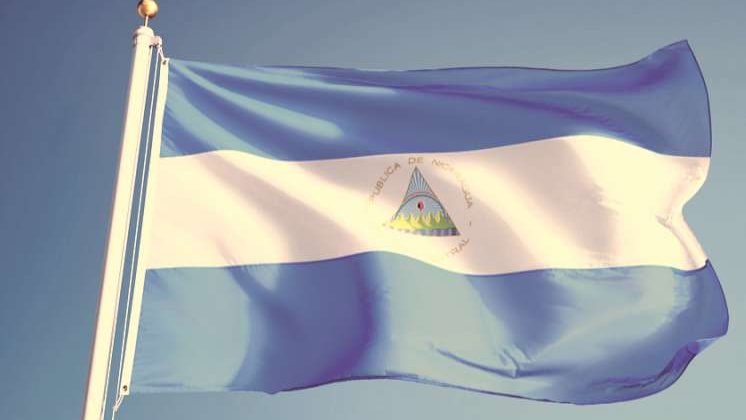A group of mothers who had been conducting a hunger strike in a Catholic church in Nicaragua have left the premises and been transferred to a local hospital for treatment.
The women had spent eight days at Saint Michael the Archangel parish in Masaya, about 20 miles southeast of Nicaragua’s capital of Managua.
“The Archdiocese of Managua, since November 14 has been very concerned about this situation that Fr. Edwing Román has been going through along with the 13 people that began a hunger strike at Saint Michael the Archangel Parish in Masaya, among them mothers of those detained [in anti-government protests],” the archdiocese said in a statement Nov 22.
Authorities had cut water and electricity to the church and surrounded it to block the exit of those inside.
Fr. Román accompanied the hunger strikers physically and spiritually, the statement said. On Nov. 22, he expressed a desire to leave the church with those gathered inside. Cardinal Leopoldo José Brenes, metropolitan archbishop of Managua, and Archbishop Waldemar Stanislaw Sommertag, apostolic nuncio in Nicaragua, then asked authorities that a humanitarian route be opened to transport the hunger strikers to Vivian Pellas Hospital.
The transfer of the hunger strikers took place later that day. Fr. Roman and the three other people were released from the hospital on Friday (Nov. 22). The remainder of the hunger strikers were discharged earlier.
“Today these homesick mothers will return to their homes,” the archdiocese said. “May God grant that very soon they will be able to share with their children, deprived of freedom, the joy of being together in family.”
Cardinal Brenes reaffirmed the archdiocese’s support for Fr. Román, and for the humanitarian work that priests have been engaged in since protests against the government began last year.
Anti-government protests in Nicaragua sprang up in April 2018. The crackdown from security forces and pro-government militias resulted in more than 320 deaths last year, with 2,000 injured and tens of thousands fleeing the country as refugees.
Modest pension reforms triggered the unrest but protests quickly turned to objections to what critics said was Ortega’s authoritarian bent.
Ortega, who previously led the country for over a decade after the Sandinistas’ 1979 ouster of the Somoza dictatorship, has been president of Nicaragua since 2007, and oversaw the abolition of presidential term limits in 2014.
The Catholic Church had suggested that the elections scheduled for 2021 be held this year, but Ortega has ruled this out.
Ortega’s backers have said that a demand for the president to leave office early and to hold early elections are tantamount to a coup attempt. Some have labeled the protesters as terrorists, the Associated Press reports.
Ortega’s government has accused many bishops and priests of supporting the opposition.
Other attacks against prayerful demonstrators at churches have also been reported.
On Nov. 21, pro-government assailants attacked San Juan Bautista church in Masaya as Mass was being celebrated, the Associated Press reported. Mass attendees had planned a march to support hunger strikers nearby.
The attackers used clubs, machetes, and metal bars to try to break through the doors. They beat the altar boys, a woman, and a 50-year-old man who were present, according to reports.
The bishops of Nicaragua have called on the government to respect the freedom of speech and assembly and to respect Catholic churches.
Updated on 11/26

